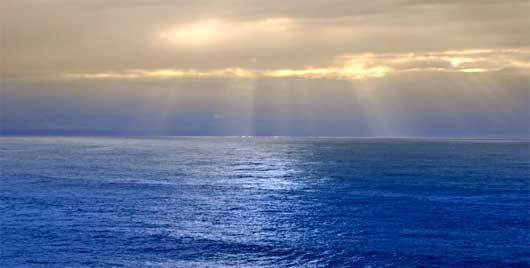
In the autumn of 2013, I spent a night in Panama City on my way from Brazil to Massachusetts. Such pauses turn an otherwise burdensome 12 hour ordeal into two more endurable six hour flights. Although an acquaintance from Brasilia had recently been bludgeoned on the streets of Panama and spent months in a hospital recuperating, I still decided to go. Early the next morning, I took to the streets to stretch my legs before re-boarding the big metal bird. And on my walk, I ran into Balboa.
Vasco Núñez de Balboa (for those not up on their conquistadorology) was one of the more admirable of the Spanish explorers of the early 16th century. You can read his story on wikipedia if you’re in doubt. He is famous in eurocentric narratives for being the first European to lay his eyes on the Mar del Sur (the ‘southern sea’). With this name he christened the huge body of water which lay to the south and west of his perch on a Panamanian hill. That this southern sea turned out to be easily the biggest body of water on earth explains why I performed my own christening – albeit not of a sea, but of an idea.
In this era of Europe-bashing, I am (as my students know only too well) a Euro-apologist. I don’t require my listeners to excuse the multiple misdeeds committed by Europeans throughout the world, or all of its bad ideas, for I readily include the inhabitants of that small westernmost appendage of the vast Eurasian landmass within the vortex of our fallible human nature. We got Bach, but then we got Hitler; Aristotle, but also Sartre. The best may come from Europe, but so does the worst. No tree stands in the sun without casting a shadow. Still, Europe’s tree, I would venture to guess, tends to to outgrow its shadow as no other.
But back to Balboa. After admiring the somewhat bombastic posture of the statue, I bent over to read the inscription. The date gave me a start: he was there in the autumn of 1513, exactly 500 years before the moment in which I was standing before his icon in 2013. I thought to myself: this is important, and I had better pay attention. Occasionally in life a convergence of factors configures into a metaphor of lifelong application, and this was one of them. Our Spaniard, exactly half a millennium before, had opened his eyes and seen something that cast all of his previous assumptions about reality into a new and immeasurably larger context. The poor man was later embroiled in local colonial conflicts and executed, probably unjustly, without ever personally carrying his new vision back to Europe. Folks learned about the new ocean anyway, but I doubt that even today we have entirely gotten the message.
For me, to live philosophically means being always poised for the next ‘Balboa moment’. Something as huge as the Pacific Ocean may be just around the corner from your recently concluded interpretation of reality. For those whose world-view, or religion, has already painted the final details and answered the last questions about the universe, I have little sympathy. Aristotle and Aquinas – my heroes – kept their horizons open-ended, and refused to impose arbitrary criteria on what reality can be or do.
For them it is not ‘history’ or ‘language’ or ‘logic’ or even ‘experience’ that must ultimately measure the realness of the real, but being. And being – implicitly for Aristotle, and explicitly for Aquinas – is ultimately personal in its highest reaches, since persons are the fullest realizations of what can be. They are, by definition, open to literally everything. And persons manifest this openness because they are both intellectual and volitional, meaning both coherent and surprising. And in a world created by One who is Personal Being Itself, anything that is, or can be, will not be excluded in principle – at least as a remote option. Compared to the possibilities of The One Who Is, the Pacific is just a puddle.



